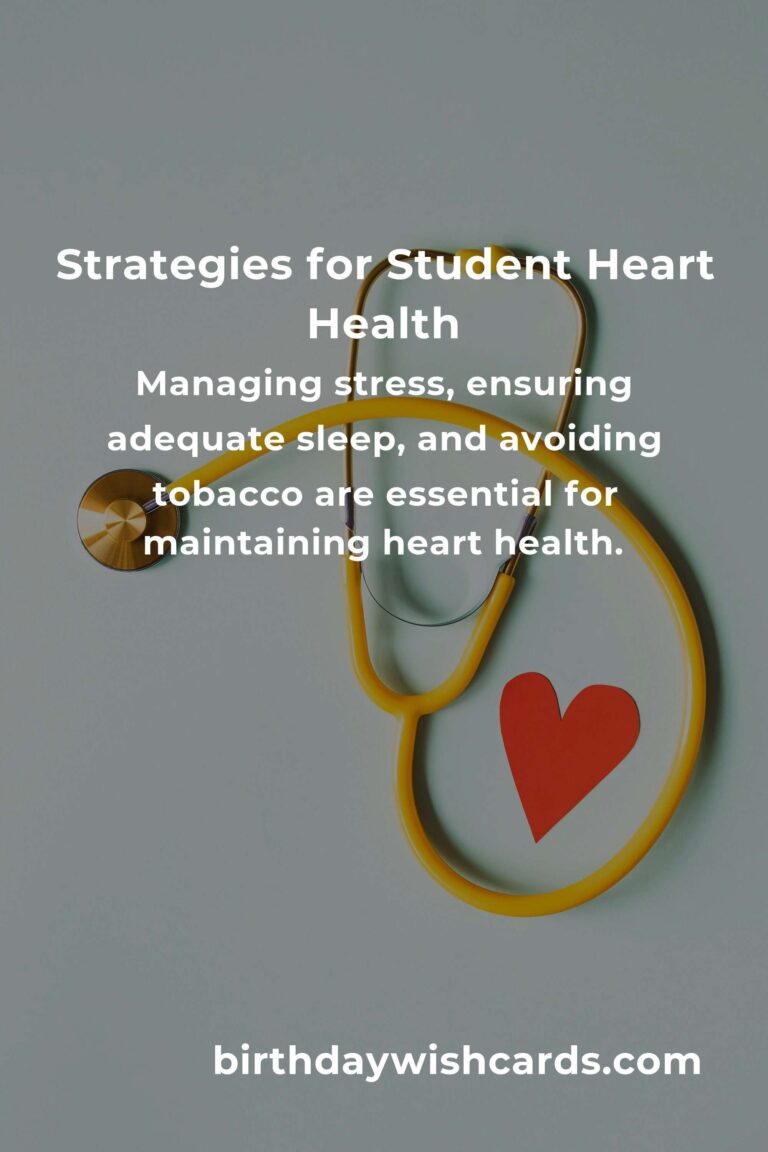
Heart health is an essential aspect of overall well-being, especially for students who are often juggling academic responsibilities alongside personal and social commitments. Maintaining a healthy heart can lead to better concentration, increased energy levels, and improved academic performance.
Understanding the Importance of Heart Health
The heart is a vital organ that supplies oxygen and nutrients to the entire body. For students, who are often engaged in mentally and physically demanding activities, keeping the heart healthy is crucial for maintaining stamina and focus. Poor heart health can lead to fatigue, decreased academic performance, and long-term health issues.
Incorporating Physical Activity
Regular physical activity is one of the most effective ways to improve heart health. Students should aim for at least 150 minutes of moderate aerobic exercise per week. Activities like brisk walking, jogging, cycling, or swimming can significantly enhance cardiovascular fitness. Additionally, incorporating strength training exercises twice a week can also benefit heart health.
Maintaining a Heart-Healthy Diet
A balanced diet rich in fruits, vegetables, whole grains, and lean proteins is essential for a healthy heart. Students should limit their intake of processed foods, sugar, and saturated fats. Omega-3 fatty acids, found in fish and flaxseeds, are particularly beneficial for heart health. Hydration is also crucial, so students should aim to drink plenty of water throughout the day.
Managing Stress Effectively
High stress levels can negatively impact heart health. Students often face stress due to exams, assignments, and social pressures. Techniques such as mindfulness, meditation, and deep-breathing exercises can help manage stress. Setting realistic goals and maintaining a balanced schedule can also reduce stress levels.
Ensuring Adequate Sleep
Sleep is a critical component of heart health. Students should aim for 7-9 hours of quality sleep each night. A consistent sleep schedule, a comfortable sleep environment, and limiting screen time before bed can improve sleep quality.
Avoiding Tobacco and Limiting Alcohol
Smoking and excessive alcohol consumption are detrimental to heart health. Students should avoid these habits to maintain a healthy heart. If cessation is challenging, seeking support from friends, family, or counseling services can be beneficial.
Regular Health Check-Ups
Regular health check-ups can help monitor heart health and identify any potential issues early on. Students should have their blood pressure, cholesterol, and blood sugar levels checked periodically.
Conclusion
Improving heart health is a multifaceted process that involves lifestyle changes, stress management, and regular health monitoring. By prioritizing heart health, students can enhance their academic performance and overall quality of life.
Heart health is crucial for maintaining stamina and focus, especially for students.
Regular physical activity and a balanced diet are key components of a heart-healthy lifestyle.
Managing stress, ensuring adequate sleep, and avoiding tobacco are essential for maintaining heart health.
Regular health check-ups can help monitor heart health and identify potential issues early.
#HeartHealth #StudentWellbeing #HealthyLifestyle #CardiovascularFitness #StressManagement













